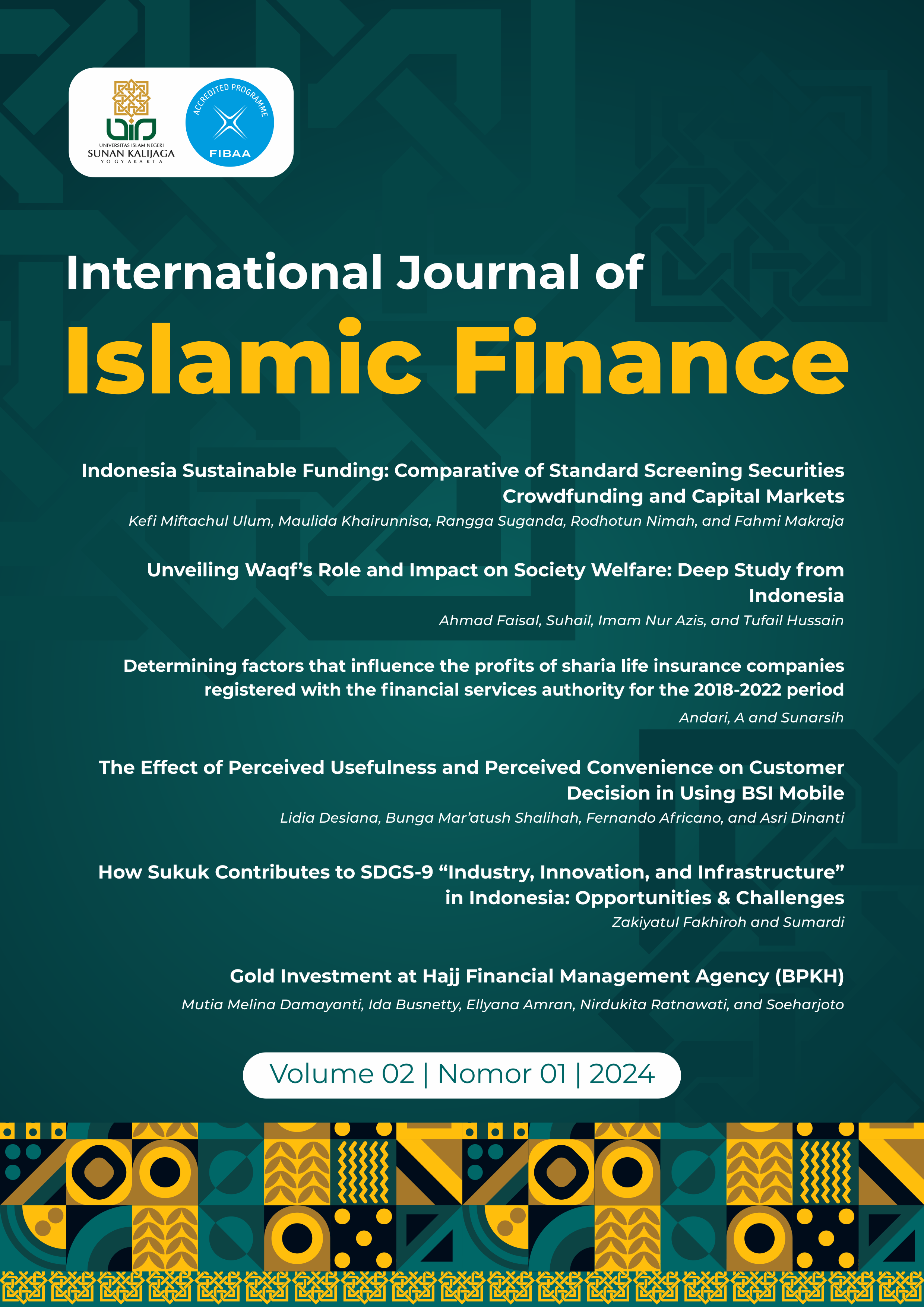Indonesia Sustainable Funding: Comparative of Standar Screening Securities Crowdfunding and Capital Markets
DOI:
https://doi.org/10.14421/ijif.v2i1.2247Keywords:
Securities Crowdfunding , Capital Market, Standard ScreeningAbstract
Background: Since the occurrence of covid-19, there has been an acceleration in the transformation of the economic cycle with the digital era transforming conventional economic activities towards the digitization of the economy. This has given rise to financial technology as a concept, giving birth to securities crowdfunding instruments. This cycle has become an alternative for sustainable funding suitable for MSMEs, with funding reaching 1 trillion, supporting 481 business units and involving 160,368 investors. Data as of August 2023 shows funding for business units reaching 268 units, with a breakdown of 10 debt, 59 sukuk, and 199 equity fundings, with a comparative percentage of 78% conventional and 22% Sharia-compliant business units. The organization of this funding faces a legal vacuum in terms of standard screening for the issuance of business units being offered. The impact of this research aims to establish or strengthen regulations on standard screening for funding MSMEs in the securities crowdfunding cycle.
Objectives: This research focuses on the standard screening and funding mechanisms of Securities crowdfunding and comparative with capital market.
Novelty: In funding MSMEs and startup companies, there are no regulations regarding screening standards for sharia issuers/companies, so it needs to be compared with the screening standards used in the capital market.
Research Methodology / Design: The legal problem of "Rechtsvacuum" or void of norms is used as an issue in this research, using normative legal research methods that use a statutory approach and a conceptual approach for data in the form of OJK Regulation No. 57 2020, POJK No. 16 2021 and POJK No. 35 2017 and some data from BEI, KSEI and related sources. Descriptive and comparative analysis is used as an analysis method for these data.
Findings: The legal problem of "Rechtsvacuum" or void of norms is used as an issue in this research, using normative legal research methods that use a statutory approach and a conceptual approach for data in the form of OJK Regulation No. 57 2020, POJK No. 16 2021 and POJK No. 35 2017 and some data from BEI, KSEI and related sources. Descriptive and comparative analysis is used as an analysis method for these data. The findings from this research reveal that there are no regulations governing screening standards in core business screening and financial ratio screening, so the guidelines used are Financial Services Authority Regulation Number 35 of 2017 concerning Criteria and List of Sharia Securities Used on the Indonesian Stock Exchange, which applies to public companies and does not apply to private securities crowdfunding cycles.
Implication: This could have implications for the preparation of screening standards for MSMEs, Startup Companies and companies that receive funding. OJK can update the standard screening regulations by adjusting the economic cycle of securities crowdfunding for medium-small capital, because the standard screening applied in the capital market cannot be applied to securities crowdfunding on the basis of the regulatory argument used by POJK No. 35 2017 specifically for the capital market, based on theory legality, these regulations cannot be used for securities crowdfunding.





